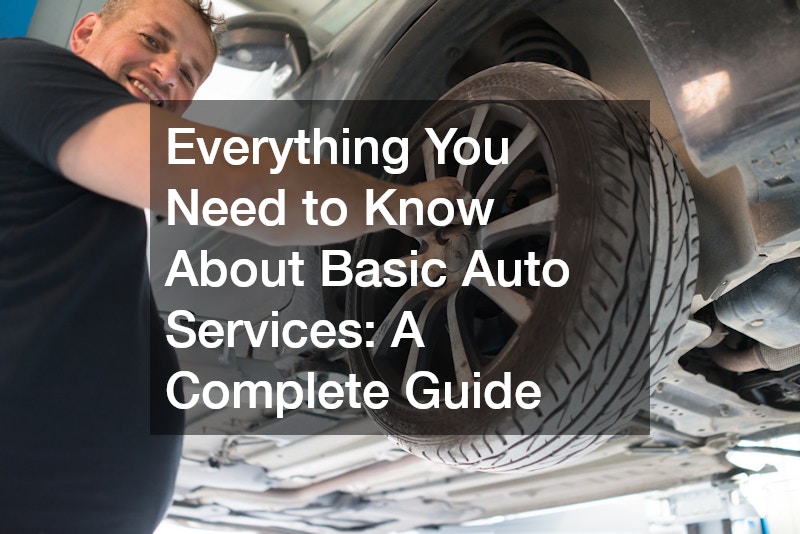In this comprehensive guide, we will delve into the essential auto services that every vehicle owner should be aware of. Understanding basic auto services can save you time, money, and help maintain the longevity of your vehicle. This guide will cover the most common services and offer practical advice on how to handle them.
How Often Should You Service Your Car?
A detailed explanation of mileage-based and time-based service intervals is essential for keeping your car running smoothly. Car manufacturers provide a specific maintenance schedule that outlines when services such as oil changes, tire rotations, and brake inspections should be performed. Knowing these intervals and adhering to them can prevent minor issues from escalating into costly repairs.
Each vehicle has unique service requirements, largely determined by the make, model, and year of the car. It is crucial to refer to your owner’s manual to understand your car’s specific maintenance needs. Knowing how to find and interpret this schedule ensures that your vehicle receives timely care, optimizing its performance and lifespan.
Adhering to the prescribed maintenance schedule doesn’t just help in avoiding mechanical failures; it can also enhance fuel efficiency. Regular servicing ensures all components function optimally, reducing strain on the engine and other systems. By following this schedule, you ensure that your car runs efficiently, saving you money at the pump.
Oil changes are critical for maintaining engine health and efficiency. Engine oil lubricates the moving parts, reducing friction and preventing wear and tear. Over time, oil breaks down and becomes contaminated, losing its effectiveness and necessitating regular changes.
What Are the Most Common Auto Services Needed?
The brake system is one of the most critical safety features of any vehicle and requires regular maintenance. Routine inspections can identify wear and tear on components such as brake pads, rotors, and calipers. Addressing these issues promptly can prevent more severe damage and ensure safe vehicle operation.
Common signs that your brakes need attention include squealing noises, a spongy brake pedal, or the vehicle pulling to one side when braking. Ignoring these symptoms can lead to brake failure, posing a significant safety risk. Regular inspections and timely repairs are crucial for maintaining optimal brake performance.
It is crucial to regularly check tire pressure, as both over-inflation and under-inflation can lead to handling issues and reduced fuel efficiency. Using a tire gauge to check pressure monthly can prevent these problems and ensure optimal performance. Regular visual inspections can help identify cuts, punctures, or excessive wear, indicating a need for replacement.
Tire tread is a key indicator of when tires should be replaced. A simple method to check the tread is the penny test; if Lincoln’s head is visible when inserted into the tread, it is time for new tires. Timely tire maintenance not only ensures safety but also improves fuel economy.
Can I Perform Basic Auto Services Myself?
Changing your oil at home can be a cost-effective way to maintain your engine’s health. To perform an oil change, you will need specific tools such as an oil filter wrench, a socket set, a drain pan, and the appropriate type and amount of oil for your vehicle. Ensuring you have these tools before starting can make the process smoother and more efficient.
Before beginning, make sure the engine is cool and the car is parked on a flat surface. Safely lift the vehicle using a jack and secure it with jack stands. Following step-by-step guides can help you complete the oil change process without complications, ensuring the engine receives fresh lubrication.
Air filters play a vital role in maintaining air quality within the cabin and ensuring the engine operates efficiently. A clogged engine air filter can reduce fuel efficiency and performance. Knowing how to replace both cabin and engine air filters can contribute to overall vehicle health.
Cabin air filters help remove dust, pollen, and other pollutants from the air entering your vehicle’s interior. These filters should be checked and replaced regularly, especially during allergy seasons or in areas with high air pollution. Engine air filters should be inspected during oil changes and replaced as needed based on driving conditions and manufacturer recommendations.
Maintaining your vehicle through basic auto services is crucial for safety and efficiency. By following this guide, you can ensure that your car remains in peak condition and avoid costly repairs in the future. Whether you choose to perform services yourself or rely on a professional, staying informed is the first step to responsible vehicle ownership.




